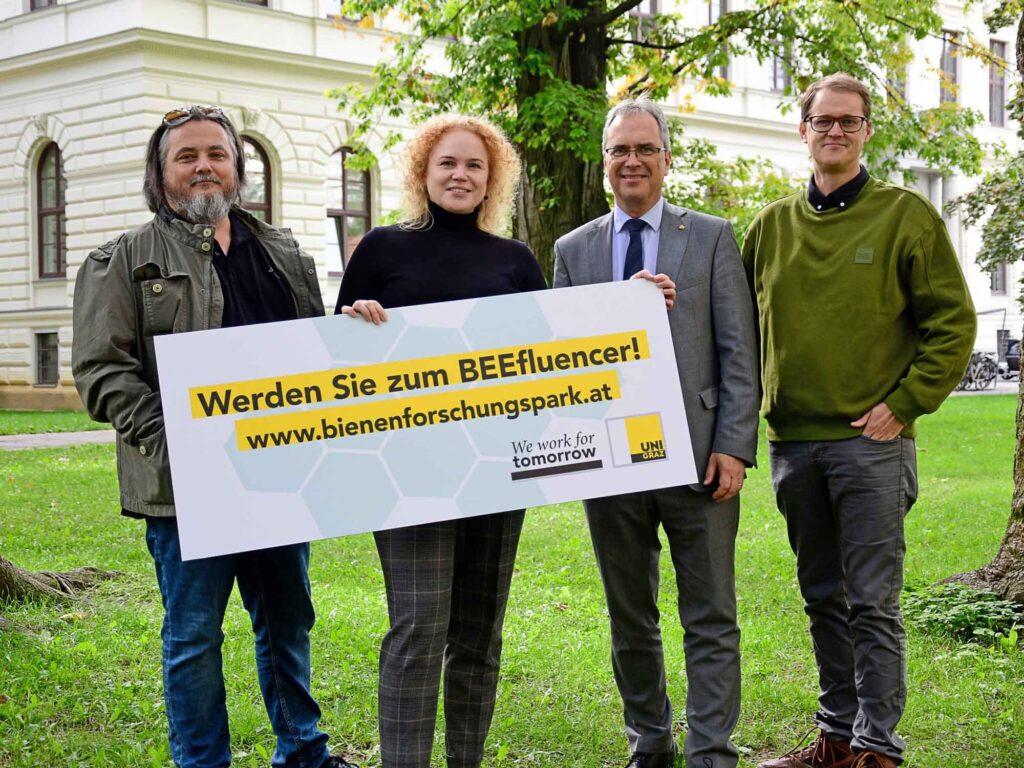become a bee supporter
Bees in Europe “aren’t doing great”, an Austrian scientist has warned as he calls for financial support for a new research hub.
Prof Dr Helmut Jungwirth from Graz University warned: “Ecological aspects, shrinking habitats and diseases pose a big threat to honey bees.”
The molecular biologist concluded: “Our bees aren’t in a great condition.”
He explained: “We are taking a closer look at their condition. We are boosting them to improve their resilience. We have even created robots to protect them.”
Jungwirth’s appeal comes as his department, the Bee Research Centre at the Karl Franzens University of Graz, Styria, has presented plans for a new honey-bee investigation park set to go into operation next year.
Biologist Robert Brodschneider explained: “Our aim is to intensify our research activities regarding the wellbeing of the honey bee.”
Graz University and the City of Graz – who are cooperating on the project – have not revealed yet where the new scientific examination venue would be located. However, the university is already calling on anyone interested in the topic to provide some financial backing.

As part of the fundraising initiative, ‘bee-fluencer’ support agreements costing between 50 and 1,500 Euros (GBP 44 to 1,306) are on offer at www.bienenforschungspark.at.
Bees pollinate around 80 per cent of domestic plants and flowers, according to the Graz University experts.
On its website, the Bee Research Centre underlines: “Honey bees are essential to the ecosystem and our nutrition. Around 40 per cent of insects are threatened by extinction. The honey bee is one of them.”
The Graz University’s Bee Research Centre scientists are focusing on evaluating risk factors for the health of bees. They are examining their immune system in order to determine the reason for the death of colonies all over Austria.
The question of how honey bees can survive in modern, urbanised areas has been at the heart of the team’s recent research endeavours.
Founded in 1585, the Karl Franzens University of Graz is one of the oldest higher education institutions in Central Europe.
There are more than 33,000 beekeepers in Austria, according to statistics provided by the Federal Ministry for Agriculture.
Austria’s beekeepers look after 456,000 colonies. Around 4,100 tonnes of honey were produced in the 2020/2021 business year.
